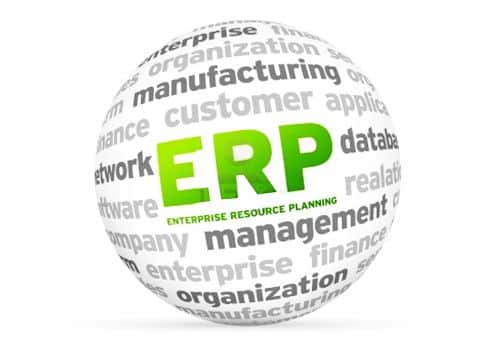ERP for Manufacturing: Your 2020 Vendor Matchup

I remember the sensational headlines and the gushing reviews — it was exciting stuff.
But I didn’t recommend it to our manufacturing clients at the time.
Glowing praise aside, the manufacturing functionality was so limited at that time, it wasn’t a viable product for manufacturing companies over $20M.
Plus, those manufacturing companies weren’t ready for a 100% cloud solution at the time. Their infrastructure was heavily on-premises, and their IT teams had good reason for keeping it that way for the time being — not least of which was the high cost of moving legacy infrastructure.
So at the time we just couldn’t, in good conscience, put it on the table for our manufacturing clients in the ERP software selection process.
Flash forward to the last five years.
NetSuite established themselves in the marketplace, proved themselves as a reliable and well-run company, and has an install base worth writing home about. Today we often recommend it for smaller ($20M-$50M) manufacturing companies or less complex larger manufacturing companies
The point?
Things change fast in the ERP space — faster than they change in the manufacturing industry.
This creates a gap that we ERP consulting firms need to address thoughtfully and sensibly. After all, we’re here to help our clients navigate the ERP waters and prevent expensive mistakes.
Manufacturing companies — especially those $20M+ — have to walk a line in today’s business environment.
They must be agile enough to keep up with the accelerating pace of business — but they also must work with their complex, sometimes inflexible infrastructure.
There are a lot of great enterprise resource planning (ERP) systems on the market today … and frankly, only a few of them are a good fit for manufacturing companies walking this line.
Like any product, software and technology have lifecycles. ERP software is no exception. Current ERP solutions run the spectrum from emerging tech to tried-and-true traditional platforms.
The technology, however, is only one part of the equation.
Our clients trust us to partner with them to select the best possible solution to their unique challenges — and we take this responsibility seriously. When my veteran team and I help our manufacturing company clients compare ERP platforms, we of course consider the technology, but we also consider the provider and how they currently operate in the marketplace.
We look for:
- Strong and stable C-Suite leadership
- Financial backing
- Large install base
- Lots of available resources in the marketplace to draw on for support and guidance
- Continuous and effective innovation of the product
- Generally happy customers
Top 5 ERPs for Manufacturing Companies
Considering these factors alongside the software features, here are the five ERPs that have most often ended up on the recommendation list for our non-niche, $20M-$250M manufacturing clients in the last year (in no particular order):
- Epicor
- Microsoft Dynamics NAV
- SAP Business All In One
- NetSuite ERP
- Infor
Read on for more details about each of these platforms.
1. Epicor
Epicor ERP has been around for over 40 years, and is designed for medium- to large-sized businesses. Importantly, the company is one of the few ERP providers that have geared their software functionality to the manufacturing environment in a significant way.
With its modular architecture, you can more easily customize your system with an Epicor ERP. Modules include accounting / financial management, customer relationship management (CRM), human resource management (HRM), document management, business intelligence and analytics, planning and scheduling, and many more. All the modules integrate and work together seamlessly.
As many manufacturing companies are starting to turn to IoT solutions for monitoring everything from shop floors to inventory to transportation, it’s important to note that Epicor has robust IoT capabilities, too.
Epicor is cloud-ready and can also be deployed on-premises.
2. Microsoft Dynamics 365 Business Central — aka Microsoft Dynamics NAV
Microsoft has recently renamed its classic Dynamics NAV ERP to Dynamics 365 Business Central — but that’s not the only thing that’s changed about this platform in the last few years. Microsoft continues to roll out great new features that make manufacturing company employees’ lives easier.
Dynamics 365 Business Central is designed for small to medium-sized businesses. While it does have specialized functionality for manufacturing environments (though not as extensive as Epicor), and it is also highly customizable, the most notable differentiator is that it’s built and deployed from the ground up on Microsoft technologies. If your existing software systems are primarily Microsoft-based, this can be an easy ERP to integrate both from a technology standpoint and a licensing standpoint.
Smaller manufacturing companies will find all the standard ERP features they need with Dynamics 365 Business Central: financial management, supply chain management, sales tools, project management, etc.
Microsoft Dynamics 365 Business Central can be deployed in the cloud or on-premises.
3. SAP Business All In One
When most people think of ERP, they think of SAP. This global technology giant is the gold standard in ERP software. For small and medium-sized manufacturing companies, SAP Business All In One can be a comprehensive solution for accounting, sales, operations, and customer support.
For advanced security, complex compliance regulations, and visualizing your entire manufacturing system, SAP Business All In One is hard to beat. And if you’re already using other SAP solutions, this is probably the first ERP platform you should consider in your selection process because it will easily integrate. That said, it is not the easiest ERP to learn to use, so prepare for a learning curve.
SAP Business All In One can be deployed on-premises or in the cloud.
4. NetSuite ERP
NetSuite from Oracle has risen quickly in the ranks, and is now a well-regarded ERP solution for fast-growing and medium-sized manufacturing companies.
The software is feature-rich right out of the box with financial, order management, procurement and supply chain management functionality, giving you a central and unified business management suite — which is great if you need the kitchen sink. While you can scale up with NetSuite, it’s harder to scale down or start smaller.
I do have to note here that if you have multiple departments that want to track their metrics separately, NetSuite’s dashboards are a dream.
NetSuite is a cloud-based solution — it cannot be deployed on-premises.
5. Infor
Lesser known in some ways, but holding its own against other global ERP giants, Infor is becoming a go-to solution for medium- to large-sized manufacturing companies.
Infor’s product offering consists of distinct ERP solutions with specific sets of features.
- Infor M3 has a feature set that can work well for manufacturing environments, but is really geared toward larger national or global brands.
- Infor CloudSuite Distribution has a feature set designed for wholesale distributors.
- Infor CloudSuite Industrial is tailored toward the manufacturing industry.
A big upside with an Infor ERP solution is the preconfigured functionality. Dashboards, reports and analytics are built in, helping you get up and running more quickly than with some other platforms.
Infor solutions are heavily touted for cloud deployment, but can also be deployed on-premises.
Honorable Mention
For manufacturing companies in the high-compliance food & beverage industry, some of the solutions above would not be appropriate — but we’d certainly add Aptean’s JustFood to the list. Like Dynamics 365, it’s built on top of the Microsoft Dynamics NAV platform.
And for manufacturing companies ready for a pure SaaS play — Acumatica is a solid up-and-comer.
The Technology You Need to Make Manufacturing Possible Today
The world is changing, and manufacturing companies are having to change with it. There are a lot of ERP solutions on the market today, but not all of them work well in the unique manufacturing industry environment.
Curious why we didn’t include some systems on our Top 5 list here? Or want to get more insight into the selection process we use to help our clients choose exactly the right ERP for their needs? Let’s talk.
ERP Readiness Self-Assessment
Is your organization ready for a new or upgraded ERP solution? Find out with this complimentary self-assessment.
Doing Business Better
You strive for excellence, believe in your people, and want to do things right the first time. And you know that you need help to get to the heart of your business challenges and make the best choices for the future of your privately held manufacturing and distribution company. That’s where we come in.
We help you focus and find exactly the right path to accelerated growth and sustainable success — from your people to your processes to your ERP software.



